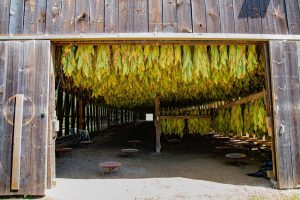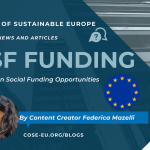Written by: Federica Mazelli
Reading time: 5 minutes
The European Regional Development Fund (ERDF) intends to improve the European Union’s economic, social, and territorial cohesion by addressing regional imbalances. It will enable investments in a smarter, greener, more connected, more social environment. A Europe that is closer to its residents in the years 2021-2027 while reducing the economic differences between European regions.
The ERDF is one of the EU’s five Structural and Investment Funds (ESIF), together with the European Social Fund (ESF), the Cohesion Fund, the European Agricultural Fund for Regional Development (EAFRD), and the European Maritime and Fisheries Fund (EMFF).
History of ERDF
The European Regional Development Fund (ERDF) was established in 1975 to provide financial support for regional economic development and structural adjustment, economic change, increased competitiveness, and territorial cooperation across the EU.
The ERDF has a budget of more than EUR 250 billion for the period 2014-20. The Fund supports projects that fall under the 11 cohesion policy thematic objectives, with a special focus on four main priorities:
- Strengthening research, technical development, and innovation
- Improving access to, as well as the usage and quality of ICT
- Increasing the competitiveness of SMEs
- Assisting the transition to a low-carbon economy in all areas
Under the European territorial cooperation objective, the ERDF also funds cross-border, interregional, and transnational projects.
The ERDF finances programmes in shared responsibility between the European Commission and national and regional authorities in the Member States. The Member States’ administrations choose which projects to finance and take responsibility for day-to-day management.
Rules of the European Regional Development Fund
The ERDF is based on several rules that must be complied with. Indeed, the Official Journal of the European Union has published the ‘’Regulation (EU) 2021/1058 of the European Parliament and of the Council-of 24 June 2021-on the European Regional Development Fund and on the Cohesion Fund’’ which contains information about how countries should manage and utilize funds.
For instance, ‘’To support the efforts of the Member States and regions in facing new challenges and ensuring a high level of security for their citizens as well as the prevention of marginalization and radicalization, while relying on the synergies and complementarities with other Union policies, investments under the ERDF should contribute to security in areas where there is a need to ensure safe and secure public spaces and critical infrastructures, such as transport and energy, thus contributing to building more inclusive and safer societies.’’ (L 231/64- 28- Official Journal of the European Union).

Moreover, the regulation document includes information about what the funding should not support (Exclusion from the scope of the ERDF and the Cohesion Fund).
‘’The decommissioning or the construction of nuclear power stations; the manufacturing, processing and marketing of tobacco and tobacco products; investment in the disposal of waste in landfill (with exceptions) etc.’’ (Art. 7- Exclusion from the scope of the ERDF – Official Journal of the European Union).
Funding priorities
The fund will allow investments to be made in Europe and its regions between 2021 and 2027, allowing Europe and its regions to:
Through innovation and support for small and medium-sized businesses, as well as digitisation and digital connectivity, Europe will become more competitive and smarter.
Greener, less carbon-intensive, and more resilient. By enhancing mobility, Europe can be even more connected. More social, with a focus on effective and inclusive employment, social inclusion, and equal access to healthcare, as well as a greater emphasis on culture and sustainable tourism. Finally, closer to citizens, promoting locally-led development and long-term urban planning throughout the EU.
In conclusion, all regions and the Member States will concentrate support on a smarter Europe, as well as a greener, low-carbon transitioning towards a net-zero carbon economy and resilient Europe, based on their prosperity.

Content Creator and Partner-event manager
“Federica is passionate about gender equality, human rights and social issues. During her studies in political sciences, international relations at the University of Bologna, Federica worked in the largest youth-run organization with the aim of developing the leadership of young people, through practical experiences in challenging environments. In her organizational role, she contributes to social issues, in particular to the achievement of the UN Sustainable Development Goals, with a positive impact on youth entrepreneurship. With her work, Federica wants to bring her generation closer to world issues and make them part of active change giving them a call to action.”
BIBLIOGRAPHY

